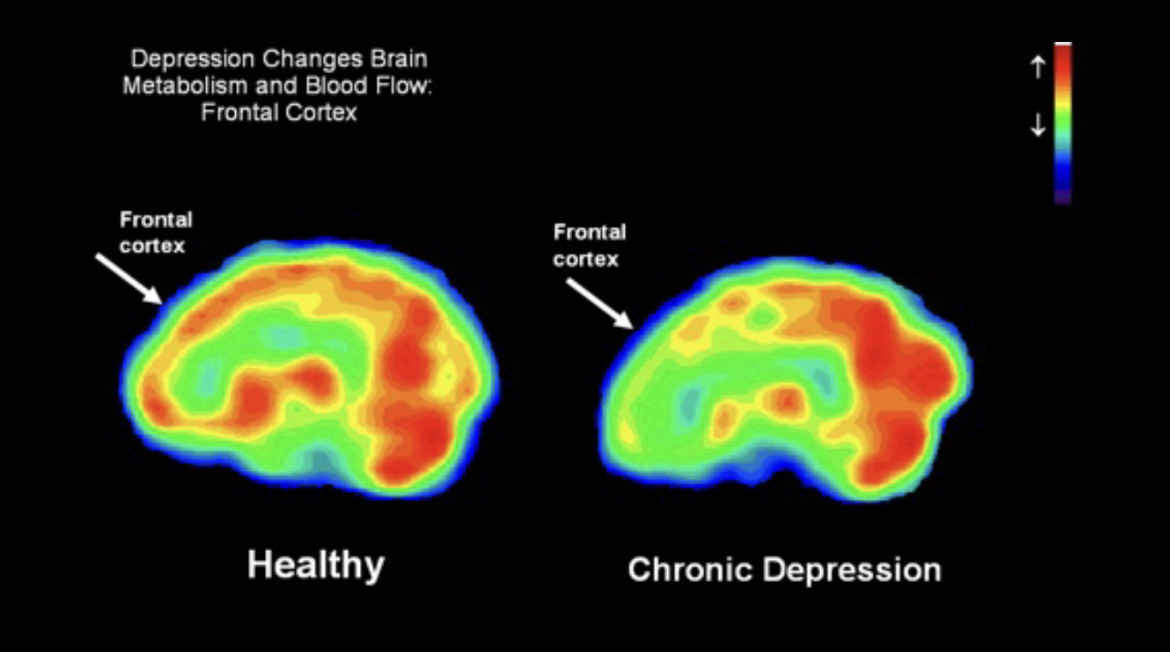Major depressive disorder is a widespread mental illness. The National Institute for Mental Health reports an estimated 7.1% of Americans have experienced at least one major depressive episode. To better understand this malady, research on a commonly found aquarium species, zebrafish (Danio rerio), is now taking place to model mental disorders, such as depression.
Although zebrafish have only recently been introduced to model mood disorders, these fish have a long history with scientific experimentation. Zebrafish are often used for medical research and drug development because their relatively rapid maturation rate and predictable sizing make them ideal models. These features have been noted by Dr. Angelo Piato at the Federal University of Rio Grande do Sul in Brazil, who has been studying zebrafish for more than a decade.
Dr. Piato, who previously studied rodents, started working with zebrafish during his postdoctoral fellowship, when he helped create a new chronic stress protocol using these animals.
“When we submit rodents to stress or humans to stress, chronic stress, the outcomes are basically the same [as in zebrafish],” Dr. Piato says. This observation has been useful in his more recent work, where he has been testing new drugs on psychiatric diseases that often are caused by stress, such as major depression.
In a 2018 study, Dr. Piato and his colleagues investigated acetyl-L-carnitine (ALCAR), a natural chemical known for its anti-stress and anxiolytic (anti-anxiety) abilities. Dr. Piato and his team housed 240 adult zebrafish for fourteen days before exposing them to ALCAR for ten minutes at different concentrations (0.1, 1.0 and 10.0 mg/L). The groups were then subjected to one of three tests: response to a novel tank, a light and dark test, or an acute stress test followed by the novel tank test. All these tests are common protocols for measuring anxiety and stress-related behaviors in zebrafish.
When ALCAR enters the zebrafish brain, it directly impacts the cholinergic system which is, in part, responsible for regulating emotions and mood. It has a neuroprotective effect on some neurons, which may minimize the effects of stress. ALCAR supports dopamine production, a brain chemical which generates feelings of happiness and reward. ALCAR’s impacts on zebrafish may have also decreased stress and anxiety in the animals. Dr. Piato’s research also notes how ALCAR improves mitochondrial function. Mitochondrial dysregulation is commonly present in psychiatric disorders.
Other scientists are also studying fish as models for psychiatric conditions. Species such as the common goldfish (Carassius auratus) and rainbow trout (Oncorhynchus mykiss) have also been used in stress-related settings and may similarly contribute to our understanding of complex mental disorders.
Dr. Piato cautions that a constraint among animal models is measuring positive behavior. For zebrafish, one of the main constraints is that it is difficult to observe behaviors related to anhedonia (inability to feel pleasure).
“We have a fish and we are mammals. So, we need to consider the difference,” notes Dr. Piato.
In the meantime, Dr. Piato wishes to continue his research with zebrafish, hoping to develop new research protocols and also study the impacts of other psychiatric diseases.
Because depression rates are increasing among youth ages 12 to 17, rising from 8.7% in 2005 to 12.7% in 2015, clinical research on this and related topics is expected to grow. Scientists are also hopeful that research in zebrafish and other species will lead to new and better human therapies.
- Zebrafish (Danio rerio) have gained popularity for the study of depression and stress.
- Further advancements in zebrafish research could potentially improve our understanding of human mental illness.
- Dr. Angelo Piato, a professor and researcher at the Federal University of Rio Grande do Sul, has studied zebrafish for over a decade.
Sources
Golla, Archana, et al. “Chronic Unpredictable Stress Induces Anxiety-like Behaviors in Young Zebrafish.” Nature News, Nature Publishing Group, 25 June 2020, www.nature.com/articles/s41598-020-67182-4.
Havlicek, Judy, et al. “Mental Health and Substance Use Disorders among Foster Youth Transitioning to Adulthood: Past Research and Future Directions.” Children and Youth Services Review, U.S. National Library of Medicine, Jan. 2013, www.ncbi.nlm.nih.gov/pmc/articles/PMC3677527/.
“Major Depression.” National Institute of Mental Health, U.S. Department of Health and Human Services, www.nimh.nih.gov/health/statistics/major-depression.shtml.
Pancotto, Lais, et al. “Anxiolytic and Anti-Stress Effects of Acute Administration of Acetyl-L-Carnitine in Zebrafish.” PeerJ, PeerJ Inc., 31 July 2018, www.ncbi.nlm.nih.gov/pmc/articles/PMC6074796/.
Pettegrew, J W, et al. “Acetyl- L -Carnitine Physical-Chemical, Metabolic, and Therapeutic Properties: Relevance for Its Mode of Action in Alzheimer’s Disease and Geriatric Depression.” Nature News, Nature Publishing Group, 17 Nov. 2000, www.nature.com/articles/4000805. “
Editorial Team
- Chief Editor: Shivani Patel
- Team Editor: Siddharth Satish
- Creative Team Manager: Maya Hofstetter
- Social Media Team Manager: Karishma Goswami
- Image Credits: Bebe Lemanowicz
Mentor
- Brooke Dulka, Ph.D., is a freelance writer and neuroscientist
Content Expert
Dr. Angelo Piato is a professor and researcher at Federal University of Rio Grande do Sul at Porto Alegre, Brazil. His research interests include Neuropharmacology and he has over 100 publications. He is currently working with undergraduate and graduate students on his research.



